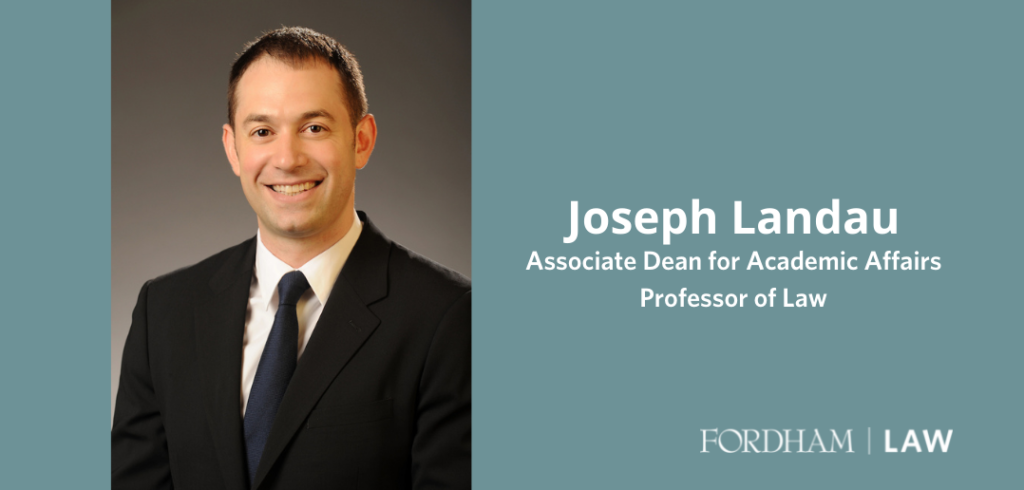Professor and Associate Dean for Academic Affairs Joseph Landau’s Minnesota Law Review article “Rescinding Rights,” which discusses the history of the rightward shift in jurisprudence was shared in the Legal Theory Blog.
Joseph Benjamin Landau (Fordham University School of Law; Fordham University School of Law) has posted Rescinding Rights (Minnesota Law Review, Vol. 106, No. 1681, 2022) on SSRN. Here is the abstract:
In the wake of the Trump Administration’s three Supreme Court appointments, many commentators are bracing for a rightward shift in jurisprudence that could undermine a litany of civil rights and equality protections—including reproductive rights, LGBTQ rights, race-and ethnicity-centered protections, voting rights, and more. Yet the Court’s apparent disinclination for advancing new equality arguments need not require the revocation of existing statutory and constitutional rights protections. During prior periods of rightward shift, conservative Justices—despite a general resistance to substantive arguments grounded in animus, privacy, disparate impact, or other substantive grounds—have often entertained procedural arguments for freezing in place a rights-affirming status quo that they might not otherwise have deemed worthy of protection in the first place. This is ‘non-retrogression’, a constitutional and quasi-constitutional dynamic in which reliance on the current state of affairs—as well as commitments to good procedure, orderliness, and judicial manageability—dissuade the Court from reverting to what it suggests might otherwise have been a perfectly lawful state of affairs. Non-retrogression explains why, for example, a Court unwilling to treat President Trump’s race-laden diatribes as dispositive animus still protected Dreamers imperiled by the Administration’s at-tempt to rescind the Deferred Action for Childhood Arrivals pro-gram; why the broader societal and cultural reliance cited by a Court openly ambivalent about Miranda’s substantive validity nonetheless upheld it; and why a Court generally unsympathetic to disparate impact analysis nevertheless read such a standard into the Fair Housing Act.
This Article traces non-retrogression’s ancestry from America’s infancy all the way through modern times, mapping its domain and exploring how a core aspect of due process—the notion that the state cannot take something away without demonstrating a good reason, and its embedded property and reliance values—can function as an unheralded proxy for substantive constitutional protection when rights are at stake. This Article further demonstrates how non-retrogression’s impact has outpaced the recognition it has received among scholars, defying the limitations that have been placed upon it by the few commentators who have engaged with it. Non-retrogression has become a force worthy of discussion, particularly with respect to the critical judicial role ensuring the integrity of the judicial process and the foundational (if fluctuating) guarantee of due process. It is a tradition the current Court would do well to heed, even as it has ominously signaled its intent to do otherwise.

